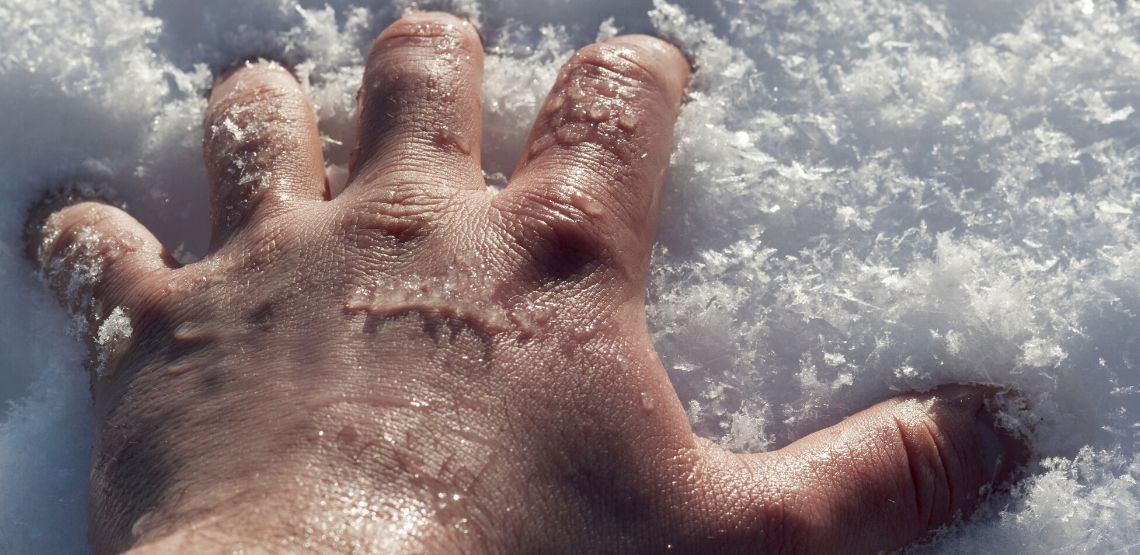The Different Causes of Nosebleeds
Nosebleeds can be worrying, but most of the time a nosebleed cause is not something to worry about. Knowing what type of nosebleed it is, however, will make it easier to treat. It also makes it easier to identify causes of nosebleeds.
Because the nose contains many blood vessels located close to the surface, nosebleeds are quite common.
Types of Nosebleeds
There are two types of nose bleeds: anterior nosebleeds and posterior nosebleeds.
An anterior nosebleed occurs in the front of the nose (in one or both nostrils) when one or more of these front blood vessels break and bleed.
A posterior nosebleed is situated in the back or deepest part of the nose. In a posterior nosebleed, the blood will flow down the back of the throat. This type of nosebleed usually requires medical attention as they can be quite dangerous.
What Causes a Nosebleed?
Nosebleeds have many causes. Sudden or infrequent nosebleeds are usually not something you should worry about. Frequent nosebleeds, however, could be a symptom of a more serious problem. Here are some of the common causes.
Dry and Cold Air
A dry climate, or central heating system can dry out the membranes inside your nose and cause the blood vessels to break and bleed.
The Use of Medication
Another common cause is taking antihistamines and decongestants. Usually these are taken for allergies, colds or sinus problems. These medications can dry out the nose’s membranes. Large doses of aspirin can also cause nosebleeds to occur more easily. The frequent use of nasal sprays, like those used to treat allergies, can also dry out your nose.
A Sinus Infection
During a sinus infection, blood may be visible in the mucus when you blow your nose. You should tell your health care practitioner about any bleeding if you go to see them about a sinus infection. An upper respiratory tract infection can also cause nosebleeds.
Nonallergic Rhinitis
This is a chronic congestion of the nose or sneezing that is not related to allergies.
Blowing Your Nose
If you blow your nose too often or too hard, you can also cause a nosebleed. Repeated sneezing is also a common cause of nosebleeds and is often a symptom of allergies or colds.
Injury
An injury to your nose may also cause some of the blood vessels to rupture. Injuries that cause nosebleeds are falls, car accidents or a blow to the face. These nosebleeds may indicate that your nose is broken, your skull is fractured or that you have internal bleeding. The severity of nosebleeds because can also differ significantly.
Related Search Topics (Ads)
Picking Your Nose
This can cause a nosebleed if you disrupt dry skin or cut the inside of your nose with your nail. Nose picking is not recommended, as you are also putting yourself at risk to germs. Also, please remember to never stick foreign objects into your nose. These could cause nosebleeds too.
Deviated Septum
This is a condition that causes one of your nasal passages to be narrower than the other. Bleeding can be a symptom.
Chemicals and Drugs
Chemical irritants like ammonia may also cause nose bleeds.
Cocaine use may also cause nosebleeds in drug users.
Other less common causes of nosebleeds are:
- High blood pressure. This may cause nosebleeds because of the pressure that is placed on the blood vessels in the nose.
- Bleeding disorders and blood clotting disorders. These may cause nosebleeds and these nosebleeds may also keep bleeding longer compared to people without these disorders.
- Leukemia. This disease is also known to cause nosebleeds
- Nasal and paranasal tumors. These could be benign or malignant.
- Nasal polyps
- Bleeding after nasal surgery
- Pregnancy
When to Seek Medical Help
Although most nosebleeds do not require medical help, there are times when a nosebleed may be serious enough to warrant seeing a local health care professional, or even going to your local hospital.
Seek medical attention for your nosebleed if:
- The nosebleed lasts longer than 20 minutes.
- The nosebleed occurs after an injury. This could be after falling, after being in a car accident or even just getting a blow on the head or face while playing sport
- It is a child younger than two.
When seeking medical help for your nosebleed, take note of:
- How long your nose has been bleeding
- The amount of blood you have lost
- Whether an injury has caused the nosebleed
- How often your nose bleeds. If this is a regular occurrence, your doctor or attending health care worker will most likely want to do more tests to rule out anything serious.
Overview
If you or a loved one have nosebleeds often, you can also keep a diary of every time it happens. Take note of any medications that are used before the nosebleed, whether there are any illness like sinusitis associated with it and even the weather conditions. This may also help your doctor find out if there is anything more serious that needs medical attention.


